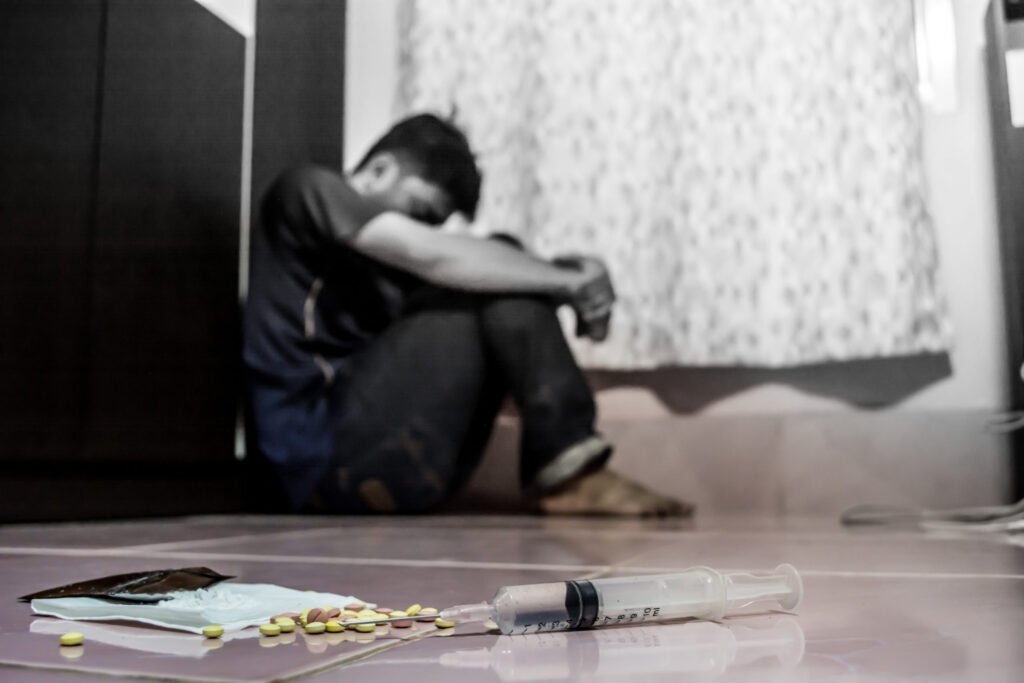
Heroin Addiction Recovery
Heroin Rehab Center & Treatment Facility
Over the course of a few years, heroin addiction in the United States has transformed from a concerning issue into a widespread epidemic. The extremely addictive and powerful drug has been on the rise and more people are using it than ever before. Heroin overdose death rates continue to climb, as thousands of people fall victim each year.
Legacy Healing Center is a comprehensive addiction treatment center located in South Florida, committed to creating a better life for those suffering from ecstasy (also known as Molly or MDMA) addiction. Built from our core values of compassion, commitment and integrity, our personalized holistic healing approach focuses on healing the mind, body and spirit of individuals seeking a more fulfilling life.
Ladies and Gentlemen,
Caring For Ladies and Gentlemen.
What Are the Signs of Heroin Addiction?
If you or a loved one is experiencing any of the following, it may be necessary to seek treatment for heroin addiction:
- Neglecting responsibilities and personal hygiene
- Nausea and vomiting
- Slow breathing
- Photophobia (pain or discomfort to the eyes caused by light exposure)
- Drug paraphernalia, such as spoons with burnt edges, syringes and rubber tubes.
- Unnecessarily trying to conceal parts of the body which are usually exposed, such as arms or legs (trying to hide “track marks” caused from injecting heroin with a syringe)
- The tendency to fall asleep wherever and whenever
- Tiny pupils, sleepy eyes, and flushed skin
- Loss of appetite/refusal to eat
Heroin Drug Information & Facts
Heroin is a synthetic opioid drug made from morphine that produces euphoric effects. Common street names include dope, smack, H, and black tar. It comes as a white or brown powder or a sticky, black goo (black tar heroin). Heroin can be injected into the bloodstream with a needle, snorted up the nose or smoked. All of these methods send it to the brain very quickly, making it very addictive.
People tend to use heroin along with other drugs or alcohol. One common mixture is heroin with crack cocaine, a practice referred to as speedballing. Doing heroin by itself is already quite dangerous, but mixing it with other substances is especially dangerous as it increases the risk of overdose or death.
What is Heroin Addiction?
Heroin is a highly addictive substance, which can lead to tolerance with continued use¹. Heroin use evolves into a substance use disorder when it causes problems with the other areas of a person’s life, such as with their family, at work, or at school.
When the substance use disorder is at its most severe stage, it can be classified as an addiction.
Causes of Heroin Addiction
Opioids, such as hydrocodone and oxycodone, are commonly used in medicine to relieve pain. These drugs act on opioid receptors on nerve cells in the brain and body to produce morphine-like effects. If taken over a short period of time and as prescribed by a doctor, prescription opioids are generally safe. Unfortunately, misuse of painkillers is becoming an ever-increasing issue due to people becoming addicted to the euphoric effects of the drugs.
Heroin is a highly addictive synthetic opioid. Like prescription opioids, it produces intense feelings of euphoria. Regular use of heroin can also cause the user to build a tolerance, meaning they need to take more and more of the drug to achieve the same effect. Taking higher doses of heroin over time causes the body to become dependent, which makes the user have withdrawal symptoms whenever they stop taking it. This can further worsen an individual’s addiction to heroin.
While addiction to painkillers certainly plays a significant role on heroin addiction (45% of heroin users were also addicted to prescription opioid pain relievers), they are not the lone culprit. Many believe heroin addiction is a part of a much bigger substance abuse problem in this country.
Most people who use heroin have also used 1-3 other drugs. Being addicted to another substance can substantially increase your chances of becoming addicted to heroin:
- Alcohol addicts are 2x more likely to be addicted to heroin
- Marijuana addicts are 3x more likely to be addicted to heroin
- Cocaine addicts are 15x more likely to be addicted to heroin
- Opioid painkiller addicts are 40x more likely to be addicted to heroin
When to Seek Help for Heroin Addiction
It’s important to seek help for heroin addiction upon recognition of the first signs. Take that first note of detachment or dependence as a signal that it’s time to pursue support in finding help. A person can seek help and overcome addiction at any point in their journey with the right treatment.
How to Help a Loved One Struggling with Heroin Addiction
If you have a loved one who is struggling with heroin addiction, your support can be an immense help in getting them to seek treatment. Encourage your loved one to seek treatment. Researching treatment options can help them feel more comfortable about their available choices. Even if they are resistant at first, continue to encourage them to seek treatment. You may also consider supporting them by attending appointments or tours of rehab centers.
Once your loved one has begun treatment, you can continue to provide support by attending family meetings. Find out other ways that you can help by talking to the treatment provider.
Types of Heroin Addiction Treatment
It can be difficult to stop using heroin, which is why treatment is often necessary. Several options exist for treatment, which can work for a variety of people. There is no one-size-fits-all approach to addiction treatment — the best option varies by person, but typically begins with detoxification.
The First Step: Detoxification
Detoxification is the first step in any treatment program. The patient will go through drug addiction detox in a safe environment to help them deal with withdrawal symptoms as the heroin leaves their system. This step can take anywhere from a few days to a few weeks to be completed. There may be separate programs, such as female detox or men’s detox, to make the patient feel more comfortable. Heroin detox can take longer because of the addictive properties than with an amphetamine detox program, but the goal is the same — to help the person rid the drug from their system.
Medication-Assisted Treatment
This option allows the patient to take medication to mitigate and alleviate symptoms of withdrawal. Methadone and buprenorphine work in the body similarly to heroin without causing addiction. They create similar effects in the brain and have been used in many patients to prevent relapse.
Therapy
Individual and group therapy is a common route those struggling with heroin addiction seek. The patient may attend these therapies in an inpatient treatment center or on an outpatient basis. During individual therapy, the patient meets with a therapist one-on-one to discuss their concerns and help them address issues as they arise.
Group therapy is a major component of many recovery programs. Patients are divided into groups and may meet daily or even multiple times per day. The groups may be divided by age, gender, or other criteria to help each person feel more comfortable attending. Each person takes part in discussions to help them develop strategies for maintaining recovery.
Family therapy is another intimate way to help rebuild relationships with loved ones and receive extra support. This therapy can also help family members deal with the effects they have felt as a result of the patient’s heroin addiction.
Behavioral therapy is one of the most important parts of treatment because it helps patients develop new skills and thought patterns to avoid relapse in the future. They learn to recognize triggers and to create plans on how to handle them.
Each person and their situation are unique, and their treatment provider will develop a custom treatment plan for their needs. It may include several types of treatment to help the person be successful.
Rehab for Heroin Addiction
Inpatient rehab allows the person to stay at a facility 24 hours a day where they will have access to treatment options throughout their stay. They may reside at the center for 30 days to six months or even longer at some facilities.
Outpatient treatment, on the other hand, enables the person to attend treatment while managing their other obligations. They will attend treatment at a facility several times a week, sometimes every day during the early phase.
How to Find a Heroin Addiction Rehab Near You
If you suffer from heroin addiction and are ready for a new life, you can get the help you need with a heroin addiction rehab facility. Legacy Healing Center is here to support you on your journey.Contact Legacy Healing Center today to talk to a treatment support specialist who can help you find the right rehab.
Sources:
U.S. Department of Health and Human Services. (2021, June 30). Heroin DrugFacts. National Institutes of Health. Retrieved March 14, 2022, from https://nida.nih.gov/publications/drugfacts/heroin
GET IN TOUCH
Contact Us
If you would like to get in touch with us or simply have any questions or comments, please call us today. Our helpline if 100% confidential.
Call Us
Email Us
Visit Us
1425 WEST CYPRESS CREEK ROAD, SUITE 201FORT LAUDERDALE, FL 33309

